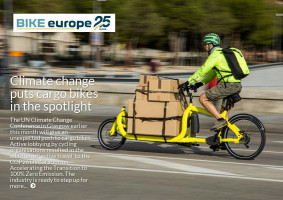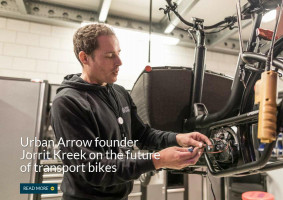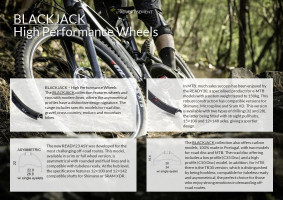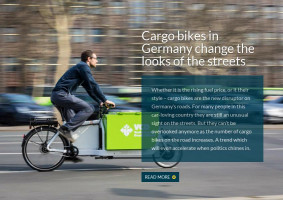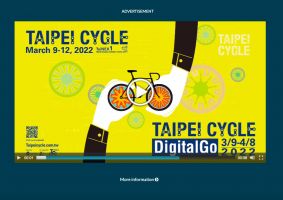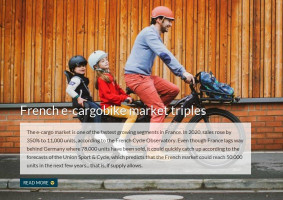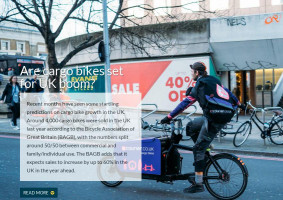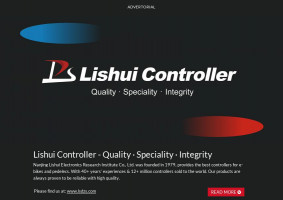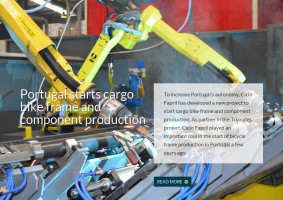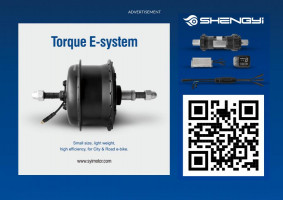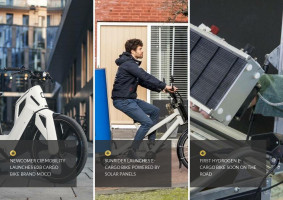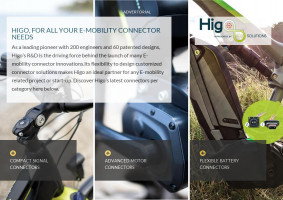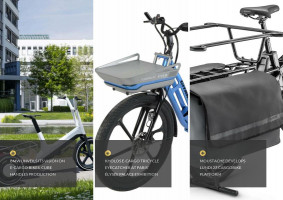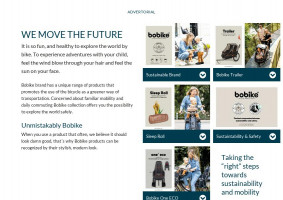Increasing congestion and the pressure from society to improve living conditions in urban areas has already resulted in a growing number of bicycles on the streets. COVID-19 accelerated this trend. Especially transport bikes because of their size and their unmistakable appearance. “Cargo bikes will also become more common outside cities and not only for the B2B market,” expects Jorrit Kreek.
In 2009 Jorrit Kreek already displayed his vision on the future of this transport vehicle when he founded Urban Arrow. After a successful start, Urban Arrow was acquired by Pon in 2019. The takeover paved the way for Urban Arrow to respond more quickly to changes in society in relation to cargo bikes. Given the global environmental challenge and the growing congestion within cities, the gradual replacement of courier vans that increasingly pop-up in the street to keep up with the growing online economy, by cargo bikes appears to be a logical option. Compared to cars and vans, cargo bikes are more agile and faster in an urban environment. Thanks to their lower speed, smaller dimensions and emission-free character, they also contribute considerably to improving the quality of life.
Urban Arrow Kreek co-founder Jorrit Kreek agrees: “We started in 2009 with the idea to get through Amsterdam more easily to take your kids to school with a cargo bike. But it didn’t have to be a workout. So an electric motor was installed under the cargo bike.”
Cities keep growing
Jorrit Kreek: “At the same time, we also looked at other user groups than just parents with children: the business to business market and transportation companies want to be able to operate more efficiently and faster in a busy environment. And we saw opportunities on the international market. Already 70% of Europeans live in cities, and that number will continue to rise in the coming decades. This puts more pressure on the quality of the environment.”
“We also saw governments opening up to find solutions to fight congestion and to reduce emissions. Look for example at the Paris climate agreement in 2015. More and more policymakers are realising that the (cargo) bike is a simple, extremely suitable solution for many issues: lower emissions, safer traffic, improved public health. Just look at Paris, where new cycle paths are being built along the Seine, where billions are being invested in cycling infrastructure. Worldwide, the cycling economy is accelerating as a result of these developments. We benefit from this development, partly because we have opted for a modular design for our cargo bikes from the very beginning. We can ship our products in parts; we offer different front frames which fit on one and the same rear frame while you can choose from different boxes. That makes our range very versatile, especially for the export market.”
Zalando effect
Another development which Urban Arrow benefitted from is the enormous expansion in the online market over the past ten years. Jorrit Kreek: “I call it the Zalando effect. The impact will become even more apparent in the future, I expect. People are ordering more and more products online, including daily groceries and ready-to-eat meals. These are perfect for being delivered by cargo bike. Demand for customised delivery is increasing and that offers opportunities for customised transport bicycles.”
Jorrit Kreek sees that the cargo bike segment is increasingly being integrated into the product range offered by the IBD. “Cargo bikes are also becoming more common outside cities and not only for the B2B market. Riding a cargo bike is fun. Just as with the MTB, I predict that transport bicycles will become a common sight at IBDs and in the streets. In addition to being a point of sale, IBDs also serve as service points. Certainly now the electric revolution is in full swing, bicycles are becoming complex products that require maintenance by professionals. Gear hubs, belt drives, electronic components: it all needs servicing by a specialist.”
Smarter technology
“There is still a lot of component mixing in the cargo bike industry. In my experience it is much more efficient to work one system that is designed as such. If you think of IoT you can consider even more useful features, such as anti-theft protection, fleet management, tracking and tracing, sensors to measuring tyre pressure, chain tension, etc. As technology becomes more complex, you will see smart solutions, such as the can-bus standard, which is already widely available in cars. However, such developments are also strongly defined by regulations. For regular e-bikes, 250W and 25 km/h are the standard, while speed pedelec have their own set of rules for road usage. For cargo bikes no such specific conditions have been set. If you were allowed to apply more torque for cargo bikes they would become a more serious option to replace the delivery van.”
Text Roel van Schalen | Photos Urban Arrow
_w512_h464_1.jpg)
_w936_h562_1.jpg)
